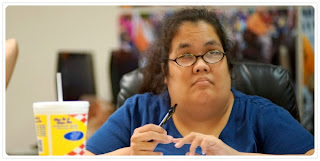Mayor Strickland speaks at the MCIL Awards Lunch
(MEMPHIS, Oct. 31, 2016) The Memphis Center for Independent Living honored the former MCIL Executive Director today at the annual Deborah Cunningham Access Awards Lunch. Mayor of the City of Memphis, Jim Strickland spoke at the event and highlighted the need for accessible neighborhoods.
Director of Fire Services, Gina Sweat also made and informational appeal to the crowd and detailed services to protect residents with disabilities. Andy Wise of WMC-TV 5 was the Master of Ceremonies for the lunch and quipped that Director Sweat should have thought twice about discussing budget problems in front of her boss, the Mayor.
“Firefighters are brave,” responded Director Sweat.
Lunch was served at Central Station to about seventy people starting at 11:00 am before the program. This years lunch was the second annual event and coincided with the thirty-first anniversary of the founding of MCIL. Following the Mayor’s address, Andy Wise presented the MCIL 2016 Achievement in Access to James Boehm for his work for access in rideshare transportation.
James Boehm (a native Memphian) has taken a stand in August and September, on behalf of guide dog users, specifically, to spread awareness and educate communities regarding the need for Uber and other rideshare drivers to follow the law, as it pertains to service dogs. James has gone above and beyond to spend time with local law-enforcement and DA staff, in order to help them understand the impact to persons with service dogs when a Uber or rideshare driver does not allow them a ride.
James Boehm spoke briefly and was flattered by the award. He did not know Ms. Cunningham but was impressed by her bio and he mentioned Deborah and the Underground Railroad used by people with disabilities to get services in other states because Tennessee did not offer services to allow people with disabilities to move out of expensive institutions.
Mr. Wise also recognized the MCIL 2016 Essay Contest Winner: Savannah Morris who received $100 for her winning essay on the “Accessible Memphis I Want in My Future.”
“Let’s make this a better Memphis by working together with one another,” read Mr. Wise from Savannah Morris’ Essay. “Everyone has a dream, let’s make the dream come true for people with disabilities.”
Andy Wise also filled in when the Mayor forgot to present a Proclamation to MCIL recognizing October as National Disability Employment Awareness Month, Andy Wise read the proclamation and presented it to Sandi Klink the Executive Director of MCIL.
Finally, Ms. Klink surprised the board and staff of MCIL by asking them to come to the front of William Hudson Hall and gave them all gifts and bragged about them and the Center to the crowd.
View More photos from the MCIL event.













